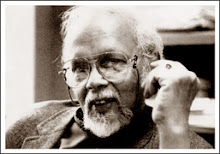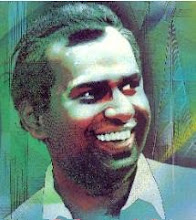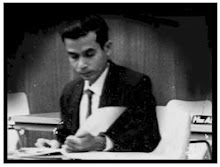 Author: Doug Hubley
Author: Doug HubleySource: www.bates.edu
Date: 3/03/2009
With the ultimate aim of teaching contemporary drama in her native Sri Lanka, a Bates College senior has received a 2009 Thomas J. Watson Fellowship to study performance arts in South Africa and Indonesia.
Sulochana Dissanayake of Pita Kotte, Sri Lanka, is one of 40 recipients of the 2009 fellowship, a $28,000 award supporting a year of independent research abroad.
What Dissanayake learns during her Watson year will support her ambition of creating a theatrical practice that brings social and political issues to Sri Lanka's rich performance traditions. She hopes to "establish an institution that provides the equivalent of an undergraduate degree in theater and the performing arts," Dissanayake explains.
South Africa and Indonesia "are similar to Sri Lanka in terms of our colonized histories, economic backgrounds, and social and political backgrounds," she says. "But both these countries, South Africa specifically, have discovered theater as a voice of their people -- something yet to be done in local English-language theater in Sri Lanka."
Entranced by performing since she was a toddler, when she and her father would improvise skits for the family, Dissanayake has received the Watson at
*
Watch videos of Sulochana Dissanayake:
Discussing her hopes for a Watson Fellowship
Discussing the Bates mainstage production she directed
the end of a remarkable Bates career. She was one of the rare first-year students to direct a production by the student-run Robinson Players, and in senior year directed one of the college's two annual mainstage productions -- a responsibility usually undertaken by a professor of theater.
All told, Dissanayake has directed nine productions at Bates, has served as theater box office manager since junior year and taken on a variety of other roles on stage and off. In summer 2008 she was a directing intern at the acclaimed Guthrie Theater, in Minneapolis, and was an apprentice the previous summer at the Williamstown Theatre Festival, in Massachusetts.
Dissanayake credits Bates with equipping her not only with the techniques, but with the professional confidence to pursue a theater career. The theater department faculty, she says, affords a "kind of intellectual freedom that really makes you realize your potential. They respect you and give you opportunities based on that, and that makes you take yourself so much more seriously and really go all out in what you want to do."
Dissanayake double-majored in theater and economics, deliberately coupling creative development with coursework that acknowledges practical realities. "My goal is to ensure that when I set up an independent contemporary theater company in Sri Lanka, I'll be able to make wise financial decisions."
In South Africa she will study such diverse organizations as Ubom!, an interracial theater company known for taking on social issues in the black townships, and "from the hip: khulumakahle," a theater company that works with deaf performers.
Inspired by exposure at Bates to a variety of Indonesian performance traditions, Dissanayake will go on to study wooden and shadow puppetry performance in Java, and also hopes to apprentice with such masters of contemporary Indonesian theater as director Ratna Sarumpaet or poet and playwright W.S. Rendra.
"I hope to closely observe their creative process," she says -- "to see how they create their socially relevant pieces, who writes them, who conceives them, and then, of course, how they cast and how they rehearse, what their development processes are like.
"But also, being true to my second major, I want to see how these theater companies are established and successfully maintained in terms of their administrative and financial processes. Because if these two developing countries can manage to have full-time theater companies, I'm pretty sure Sri Lanka is not far behind."
While her native land has a long and robust indigenous performance tradition, and also Western-style classical and commercial theater, there hasn't emerged a socially relevant synthesis of the two. "It takes a unique vision to create a work which is both entertaining and political at the same time," Dissanayake says. "Theater and all other art forms are still looked as an escapist form in Sri Lanka."
"In a country where civil war has lasted more than 25 years and is still raging, there’s no shortage of stories that need to be told. I hope my experience will allow me to initiate a novel contemporary theater movement that would be improved and maintained by talented and deserving local artists."
At least one Bates senior or graduate received a Watson Fellowship every year from 1985 through 2000, in 2002 and 2003, and from 2006 through 2009.
A program of the Thomas J. Watson Foundation, of Providence, R.I., the Watson Fellowship was established in 1968 by the wife and children of Thomas J. Watson Sr., the founder of IBM. Fellowship is designed to identify potential leaders and challenge them in ways that foster independence, a global perspective and adaptability to new cultures.
It funds research on a topic deeply important to the recipient and conducted outside the formal academic environment and the recipient's home culture. This year's fellows come from 21 states and three foreign countries.
- Doug Hubley, Office of Communications and Media Relations
blank image



































No comments:
Post a Comment